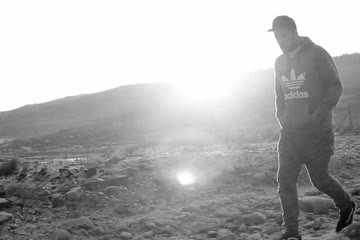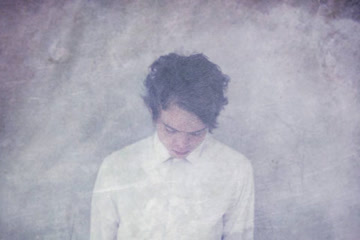OPINION: We Don’t Pay Enough For Music
“For our part as consumers, maybe $13.99 a month is far too little to pay for something as powerful as music.”

Spotify DJ (Spotify)
I do not know what life must have been like for people born before recorded music was widely available. Music has always been a part of human lives to be sure, and I am certain in those pre-recorded music times, people still filled their days with song and melody. I am sure they gathered around whatever instruments they had at night to sing and listen. I am sure they spent their days whistling and humming and tapping out tunes.
But when I think of them, I realise our enormous privilege, to be able to access more recorded material than one could listen to in a lifetime at the touch of a button. I think of them and, as someone who cannot sing to save myself, I am horrified at the thought of being dependent on my own voice to provide a soundtrack throughout the bulk of my day. My life has always had a soundtrack – first on cassette and via the radio, then CDs and iPods, and now through streaming and all the various musical corners of the internet. Live music too, but there is something special about being able to listen to the exact song that you want to hear, exactly when you want to hear it.
I think about the soundtrack of my life sometimes. There are books that I can’t even think about without hearing the CD I had on repeat when I first read them. And there are songs that immediately pull my back to people and places long since forgotten. I hear any track from Only By The Night and I am 17 again, riding shotgun in Kate’s car with a bunch of friends crowding the back seat, on our way to Macca’s for late-night sundaes. Stop by the Spice Girls comes on and I’m seven, playing kiss-and-catch in the playground, too fast to be caught – to my enduring disappointment – watching the girls perform an elaborate dance routine to the song and singing it at me more than to me. There are deeper and more personal memories too. Morningtown Ride is my mother singing a lullaby – and Spangle Road, well, that one is just for me.
All of this has me thinking about the value we place on music. Increasingly it is becoming difficult for musicians at any level below the very top to make a living from music, and our live music scene is clearly in trouble with venue closures and festival cancellations. Much of this is outside of our control as consumers, but I think the value we place on music just might be. Given the importance of music in many of our lives, maybe $13.99 a month for access to essentially all recorded music is a bit, well... insulting. Maybe we should be willing to pay more.
This was all driven home to me over the past 12 months. Last year, my brother died. It had been a long time coming, and at the end it seemed like it might never come but just drag on forever – but in the end it came. I spent much of the last year of his life down at my parents house, helping them care for him and just generally hanging out. That also meant commandeering my dad’s sound system and saving us all from listening to the same tired playlist on repeat ad nauseam. I tried, sometimes successfully, to introduce my family to new music. And in those last few months I went and saw a small-ish Australian band play in Wollongong. They were called Winterbourne.
I went into the show with fairly tepid expectations. I was there to write a review, I hadn’t heard of them before, and the two white guys playing folk had a knock-off Mumford & Sons vibe that I figured could be fun enough, but wasn’t exactly going to set the world on fire. But my friends SULT were opening, and they were always good, so I went happily. I went in uncertain, but I left a convert.
Don't miss a beat with our FREE daily newsletter
Winterbourne were amazing. James [Draper] and Jordan [Brady] had incredible live vocals and are the sort of nauseatingly talented musicians who can play every instrument better than you can play the one you’ve been taking lessons on for years. The songs were a kind of happy-sad, melancholy sweetness that leeched into me and the harmonies played in my head for hours afterward. They were less Mumford & Sons and more Simon & Garfunkel – but decidedly modern. I couldn’t understand why they weren’t in bigger venues; I guess the style of music they played was a little hard to pin down and not quite of the moment.
The next day I was down at my parents, and within a couple of hours I had made them converts too. And so over the coming months, as my brother slipped further and further from us, Winterbourne became the soundtrack. I think it was that blend of melancholy and joy – it allowed us to feel the sadness circumstance required but without having to feel maudlin or overwhelmed.
One song in particular became quite important, especially to my mother. I used it under a montage of photos I put together for the funeral. It’s called Long Distance Runner. I’ve actually actively avoided trying to puzzle out what James is singing about. I can tell from what of the lyrics I’ve absorbed it doesn’t really relate to my brother at all. But there’s something in that title line that my mum latched on to. My brother was a fighter, he was meant to be dead before he turned five, he died shortly before he could turn 28. He was also unable to walk and spent much of his life zipping about in a wheelchair, and I think my mum liked the irony of ‘long-distance runner’.
A few months after he left us, Winterbourne were playing in Sydney. I’d organised tickets to see them for both my parents. It was quite a sight watching them navigate the Factory Theatre. But then Winterbourne came on and I swear they both became young again. I chose not to look at my Mum during Long Distance Runner. If either James or Jordan spotted her from the stage, she must have been quite the sight, tears streaming down her face as they played one of their more upbeat songs. But that night was a moment of catharsis for all of us. It didn’t end our grief – that’s an ongoing process – but it bookended it somehow.
For whatever reason, Winterbourne had connected with us in a vulnerable moment and has become inextricably linked with my brother’s life and death. And being at that concert, it wasn’t quite a moment of healing, but it was a profound shared experience, the likes of which only music can provide. Both my parents now want to start a campaign to help James and Jordan achieve the level of success they believe they deserve.
Now, a year after his death, whenever my parents want to think about their son, they just have to put on a Winterbourne song. That’s not to say they can’t listen to them without sadness, they can, and they do, but that music connects to us in ways that are deeply profound and beyond my ability to fully express in words.
What I am saying is this: maybe at a time when musicians both here and abroad are struggling – at a time when many are sounding alarm bells about our local industry – there need to be solutions. Many of these solutions need to come from people with far more power than most of us. They need to come from the labels, from regulators, from governments. But for our part, as consumers, maybe $13.99 a month is far too little to pay for something as powerful as music.
EDITOR’S NOTE: In addition to being an incredible writer, Mark Griffin performs in the indie-pop band Strawberry Swing – head here to check them out!







